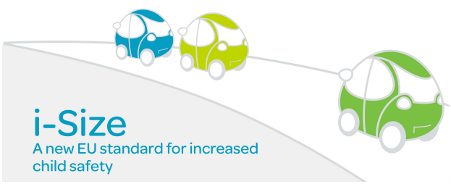In a move to improve the protection of children in car accidents – which are still the leading cause of child deaths in Europe – new legislation on child car seats has been adopted by 60 countries, including the UK.
Child car seat manufacturer, Maxi-Cosi, is joining with the industry body, the Baby Products Association, and global transport research consultancy, TRL, to explain the new legislation to retailers, the nursery industry and members of the media.
At the event, at the Berkeley Hotel, Wilton Place, central London, attendees will hear from leading experts including: Mark Pitcher and Hamish McPhillips of Transport Research Ltd; Marian Hynd of Graco, and François Renaudin of Dorel – owner of the Maxi-Cosi brand.
The new i-Size regulations address three major factors which currently contribute to the weekly toll on Europe’s roads of 10 child deaths and 1,150 injuries: the mandatory age for rear-facing car seats, integral ISOfix fittings in cars, and improved side impact regulations.
Until now, in most European countries, children are changed from rear- to forward-facing car seats from around nine months but research from Germany showed that the number of child fatalities in cars rose dramatically at the age of one. In Sweden, where children sit rear-facing for longer, there were no fatalities in this age group. The i-Size regulations take account of this in viewing the period up to 15 months as the optimum time for children to remain rear-facing.
The incorrect or non-use of child restraint systems is also a major threat to children travelling in cars. It is estimated that two thirds of children are not properly restrained for a number of reasons: wrong buckle used; the car seat belt too short, twisted or not tightened; the wrong fixation, position or belt clamping function not used.



















Andrew - 14/11/2013 13:28
I agree with the above but can I also add a note. Some car manufacturers in very recent times have removed side airbgs from standard equipment on some variants to reduce costs. That should be looked at together with the items mentioned above.